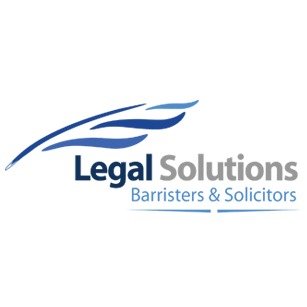Best Foreclosure Lawyers in Launceston
Share your needs with us, get contacted by law firms.
Free. Takes 2 min.
Free Guide to Hiring a Real Estate Lawyer
List of the best lawyers in Launceston, Australia
About Foreclosure Law in Launceston, Australia
Foreclosure law in Launceston falls under the jurisdiction of Tasmanian and Australian National laws. The process involves a legal proceeding initiated by the lender to regain the possession of the property because the borrower has defaulted on the mortgage payments. It's important to understand that this is generally seen as the last resort, and lending institutions typically explore other ways of recovering the debt prior to beginning foreclosure proceedings. The judicial process takes place in the Supreme Courts and could lead to the auctioning of the property to recover the debt.
Why You May Need a Lawyer
Foreclosure laws can be complex and emotionally draining to navigate. Engaging a lawyer can ensure your rights are protected and improve your chances of finding a viable solution. A lawyer can negotiate with the lender on your behalf to possibly restructure your mortgage, delay the foreclosure, or find other beneficial outcomes. They can also provide advice on your legal obligations and rights pertaining to the mortgage contract. Also, a lawyer can assist you in court, ensuring appropriate procedures are followed during the foreclosure process.
Local Laws Overview
Tasmanian law stipulates that lenders can begin foreclosure proceedings after several missed mortgage payments, although they usually wait for more substantial default. Before the foreclosure process begins, a lender is required to issue a Notice of Sale or a Demand Notice. The borrower is generally allowed 30 days to pay after the Notice of Sale is issued. If the debt remains, the lender may then commence legal proceedings seeking the sale of the mortgaged property. Specific legislation that governs foreclosure in Tasmania includes the Conveyancing and Law of Property Act 1884, and the Supreme Court Civil Procedure Act 1932.
Frequently Asked Questions
What happens if I can't pay my mortgage?
If you're unable to meet your mortgage payments, it's recommended you seek legal advice as early as possible. If you default on your mortgage, your lender has the right to take possession and sell your property to recover the debt. However, alternative solutions may be available based on your individual circumstances.
Can I sell my house if it is in foreclosure?
You can sell your house during foreclosure if the amount raised can cover the total debt owed. However, the sale process can be complex, and having legal counsel can ensure you're on the right path.
How can I stop or delay foreclosure proceedings?
In some instances, foreclosure can be stopped or delayed by negotiating a payment plan with the lender, refinance, or declare bankruptcy. A foreclosure lawyer can help in identifying the best possible solution for your situation.
What is the impact of foreclosure on my credit score?
Foreclosure can significantly lower your credit score and may remain on your credit report for at least five years, influencing your ability to secure future loans.
What happens after foreclosure?
After foreclosure, if the sale of the property doesn't cover the remaining mortgage debt, you may still owe the lender the outstanding balance, known as a deficiency. Certain laws apply to deficiencies and its wise to consult with a lawyer to understand your position.
Additional Resources
The Legal Aid Commission of Tasmania and the Tasmanian Law Handbook Online offer free guides and resources on foreclosure. The National Debt Helpline can provide free financial counselling. However, for personalised advice, consider engaging the services of a lawyer.
Next Steps
If you are facing possible foreclosure, your first step should be to seek legal advice. Review your finances carefully, communicate with your lender about the difficulties you're experiencing, and explore all your options. Your lawyer can guide you through all these steps and across the complex legal landscape of foreclosure.
Lawzana helps you find the best lawyers and law firms in Launceston through a curated and pre-screened list of qualified legal professionals. Our platform offers rankings and detailed profiles of attorneys and law firms, allowing you to compare based on practice areas, including Foreclosure, experience, and client feedback.
Each profile includes a description of the firm's areas of practice, client reviews, team members and partners, year of establishment, spoken languages, office locations, contact information, social media presence, and any published articles or resources. Most firms on our platform speak English and are experienced in both local and international legal matters.
Get a quote from top-rated law firms in Launceston, Australia — quickly, securely, and without unnecessary hassle.
Disclaimer:
The information provided on this page is for general informational purposes only and does not constitute legal advice. While we strive to ensure the accuracy and relevance of the content, legal information may change over time, and interpretations of the law can vary. You should always consult with a qualified legal professional for advice specific to your situation.
We disclaim all liability for actions taken or not taken based on the content of this page. If you believe any information is incorrect or outdated, please contact us, and we will review and update it where appropriate.









